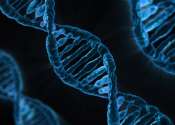Discovery of molecular pathway of Alzheimer's disease reveals new drug targets
The discovery of the molecular pathway that drives the changes seen in the brains of Alzheimer's patients is reported today, revealing new targets for drug discovery that could be exploited to combat the disease. The study ...
Nov 20, 2012
0
0






